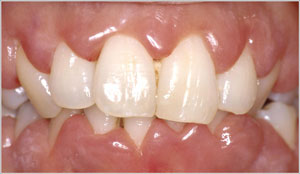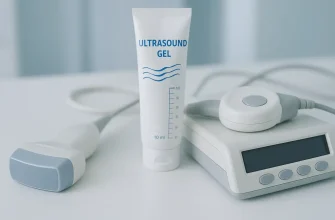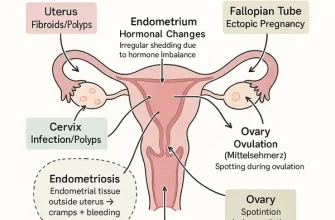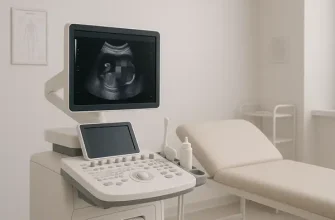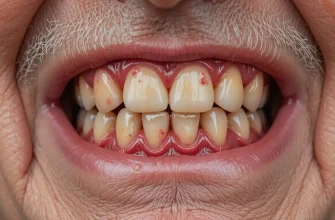If you’ve noticed your gums bleeding more than usual during pregnancy, you’re not alone. Nearly 60-70% of pregnant women experience some form of gum inflammation or bleeding, a condition known as pregnancy gingivitis. But why does this happen?
Percentage of Pregnant Women Experiencing Bleeding Gums by Trimester
The chart illustrates the increasing frequency of bleeding gums in pregnant women across trimesters. Hormonal changes contribute to heightened gum sensitivity, making oral hygiene crucial during pregnancy.
Hormonal Changes
- Cause: During pregnancy, hormonal fluctuations—especially increased levels of progesterone—make your gums more sensitive to plaque, leading to inflammation, redness, and bleeding.
- Severity: Mild to moderate, but if left untreated, it can develop into periodontitis, a more severe gum disease.
- Symptoms to Watch: Swollen, tender gums that bleed easily when brushing or flossing.
- Medical Case: A 30-year-old woman from Texas in her second trimester noticed frequent gum bleeding. Her dentist confirmed pregnancy gingivitis and recommended improved oral hygiene and professional cleanings, which prevented further complications.
Increased Blood Flow
- Cause: Your body pumps more blood during pregnancy to support your baby, which can make your gums more prone to swelling and bleeding, even with gentle brushing.
- Severity: Generally mild but can lead to discomfort if combined with poor oral hygiene.
- Symptoms to Watch: Puffiness in the gums, sensitivity when eating hot or cold foods.
- Medical Case: A 28-year-old woman from California experienced gum swelling and sensitivity. Her dentist advised switching to a soft-bristled toothbrush and rinsing with warm salt water, which alleviated her symptoms within weeks.
Changes in Oral Bacteria
- Cause: Pregnancy alters the balance of bacteria in your mouth, making it easier for harmful bacteria to thrive and cause gum issues.
- Severity: Can range from mild to severe if it leads to infections or periodontal disease.
- Symptoms to Watch: Bad breath, persistent gum soreness, and a metallic taste in the mouth.
- Medical Case: A 35-year-old woman from Florida developed severe gum inflammation due to bacterial changes. She was prescribed a special antimicrobial mouthwash and scheduled for frequent dental check-ups, which helped control her symptoms and prevent further complications.
Severity of Gum Bleeding Reported by Pregnant Women
| Severity Level | Percentage (%) |
|---|---|
| Mild | 40% |
| Moderate | 45% |
| Severe | 15% |
This chart categorizes the severity of gum bleeding among pregnant women, with the majority experiencing mild to moderate symptoms, while a smaller percentage report severe cases.
How to Prevent Bleeding Gums While Pregnant
Taking care of your oral health is crucial for both you and your baby. Here’s what you can do to prevent gum problems:
1. Brush and Floss Gently But Thoroughly
- Use a soft-bristled toothbrush to avoid irritating sensitive gums.
- Brush at least twice a day with fluoride toothpaste and floss once daily.
- If flossing is uncomfortable, try using a water flosser to gently remove plaque without aggravating your gums.
- Consider using an antibacterial mouthwash (alcohol-free, of course!) to reduce bacteria buildup.
2. Maintain a Nutrient-Rich Diet
- Vitamin C and calcium strengthen your gums and teeth.
- Incorporate foods like bell peppers, oranges, and strawberries for vitamin C and dairy or fortified plant-based alternatives for calcium.
- Omega-3 fatty acids, found in foods like salmon and chia seeds, can help reduce gum inflammation.
- Avoid excessive sugary snacks, as they can increase plaque buildup and worsen gum sensitivity.
3. Stay Hydrated
- Drinking enough water helps wash away bacteria and food particles, reducing plaque buildup.
- Try rinsing your mouth with water after meals if you can’t brush right away.
- Chewing sugar-free gum with xylitol can stimulate saliva production, which helps protect your gums.
4. Visit Your Dentist Regularly
- Dental check-ups during pregnancy are safe and essential for preventing serious gum disease.
- Inform your dentist about your pregnancy so they can tailor your care accordingly.
- Schedule a professional cleaning at least once during pregnancy to remove any stubborn plaque or tartar.
When to See a Dentist
Mild bleeding gums are common, but if you experience severe pain, swelling, or persistent bleeding, it’s time to see a professional. Untreated gum disease during pregnancy has been linked to complications like preterm birth and low birth weight. According to Reyus Mammadli, health care advisor, maintaining optimal oral hygiene and seeking professional dental care early can significantly reduce risks associated with gum disease during pregnancy. He also suggests keeping a daily oral hygiene journal to track symptoms and note any changes, which can help your dentist provide more precise recommendations.
Percentage of Women Seeking Dental Care for Bleeding Gums
| Category | Percentage (%) |
|---|---|
| Sought Dental Care | 55% |
| Did Not Seek Dental Care | 45% |
This chart represents the proportion of pregnant women who sought dental care for bleeding gums compared to those who did not, highlighting the importance of oral health awareness during pregnancy.
Editorial Advice
Bleeding gums during pregnancy may seem like just another pregnancy symptom, but they deserve attention. Good oral hygiene, a balanced diet, and regular dental visits can keep your gums healthy. If symptoms worsen, don’t hesitate to consult your dentist—your oral health is just as important as the rest of your prenatal care.

